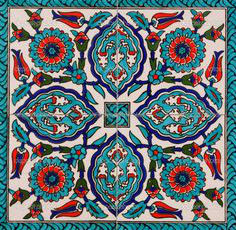 In the fall of 2020, a volume edited by Tijana Krstić and Derin Terzioğlu entitled Historicizing Sunni Islam in the Ottoman Empire, c. 1450 – c. 1750, included a chapter by UMW Middle East History Associate Professor Nabil Al-Tikriti. The chapter, entitled “A Contrarian Voice: Şehzāde Ḳorḳud’s (d. 919/1513) Writings on Kalām and the Early Articulation of Ottoman Sunnism,” provides an examination of the role Prince Korkud’s writings played in the early modern evolution of Ottoman religious identity.
In the fall of 2020, a volume edited by Tijana Krstić and Derin Terzioğlu entitled Historicizing Sunni Islam in the Ottoman Empire, c. 1450 – c. 1750, included a chapter by UMW Middle East History Associate Professor Nabil Al-Tikriti. The chapter, entitled “A Contrarian Voice: Şehzāde Ḳorḳud’s (d. 919/1513) Writings on Kalām and the Early Articulation of Ottoman Sunnism,” provides an examination of the role Prince Korkud’s writings played in the early modern evolution of Ottoman religious identity.
The chapter abstract: “What characterizes Ottoman Sunnism, and how did it come to be? The conventional view is that by roughly the middle of the sixteenth century the imperial elite came to adopt and promote a particular religious identity, which can be characterized by several overlapping, interrelated, and historically defined denominational (madhhab) affiliations, as well as a particular relationship with the political hierarchy. The favored denominations included Hanafi legal affiliation and Maturidi kalām orientation, accompanied by elite support for particular aspects of mystical thought and practice, a cooperative relationship between favored Sufi orders and the state, and advanced integration of the ulama into a state-supported madrasa system.”
“One figure whose writings reflect this coming together of Ottoman Sunnism at a nascent stage is Şehzāde Ḳorḳud (d. 919/1513), who argued a series of positions on matters of religious belief, doctrinal certainty, favored groups, and the relationship between the state and ulama. Largely because he failed to win power in the 917–919 / 1511–1513 dynastic succession struggle, the prince’s arguments left a limited mark, and several of his positions reflected a minority viewpoint. However, at the same time, his positions highlight several relevant intellectual influences at that time and place, point to factors contributing to the form Ottoman Sunnism came to take, and demonstrate the range of debate inherent in elite circles at the time.“